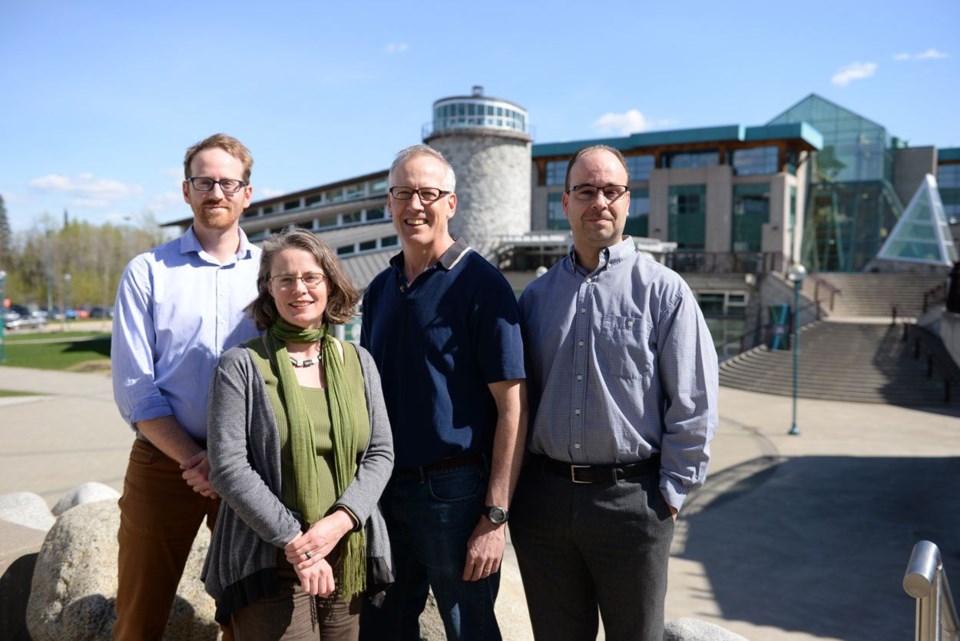When it comes to resource development, northern B.C. has strong researchers looking at the impact on environment, and community and human health.
But the groups aren't necessarily working together and sharing that knowledge, said Chris Buse.
"There's not a lot of integrative cross-talk," said Buse, the project lead for the new Cumulative Impacts Research Consortium.
The University of Northern B.C. initiative launched this weekend to introduce its research team and showcase other experts in an event open to the public on Friday and Saturday.
CIRC was born in January 2014, Buse said, out of "this idea that we need a new kind of body that's capable of spending a significant amount of time and energy really focusing on this issue and doing it in an integrative way."
The hope was that the weekend's conversations will help the consortium crowd source ideas for strategic research work, but also give the group a list of all the projects that are happening in the north.
Buse said he envisions the group as a knowledge hub archiving existing projects, but also to "start to be able to see the connections between those projects and see the gaps and focus on filling those gaps."
About 80 groups registered for the event from across sectors, including industry, government, First Nations and health agencies.
"It's a really eclectic group," he said adding the consortium has a broad scope. "We want to be engaged in questions around renewables, we want to be engaged in questions around mining, in energy development. If it has anything to do from resource development, we're interested in being part of that conversation."
The consortium involves three existing UNBC bodies: the Community Development Institute, the Health Research Institute, and the Natural Resources and Environmental Studies Institute.
One project that's top of mind is LNG in the Peace Region. But it can be difficult to separate projects, Buse said.
"How is it that we separate the impacts of oil and gas development in an area that's got a number of land use legacies? Everything from mining to agriculture, forestry operations," he said.
"How do you separate the impacts of these new projects that are ongoing with the historical land uses that have already impacted the development of those communities and its impacts on the environment?"
One goal for the group is improving B.C.'s existing environmental assessment process.
While it occurs for large industrial projects, Buse said, "we do have some concerns about how that process is implemented and the kinds of things that are measured and accounted for and not accounted for, so particularly trying to develop a new assessment architecture that's mindful of sort of the spatial and temporal scale of impacts."



